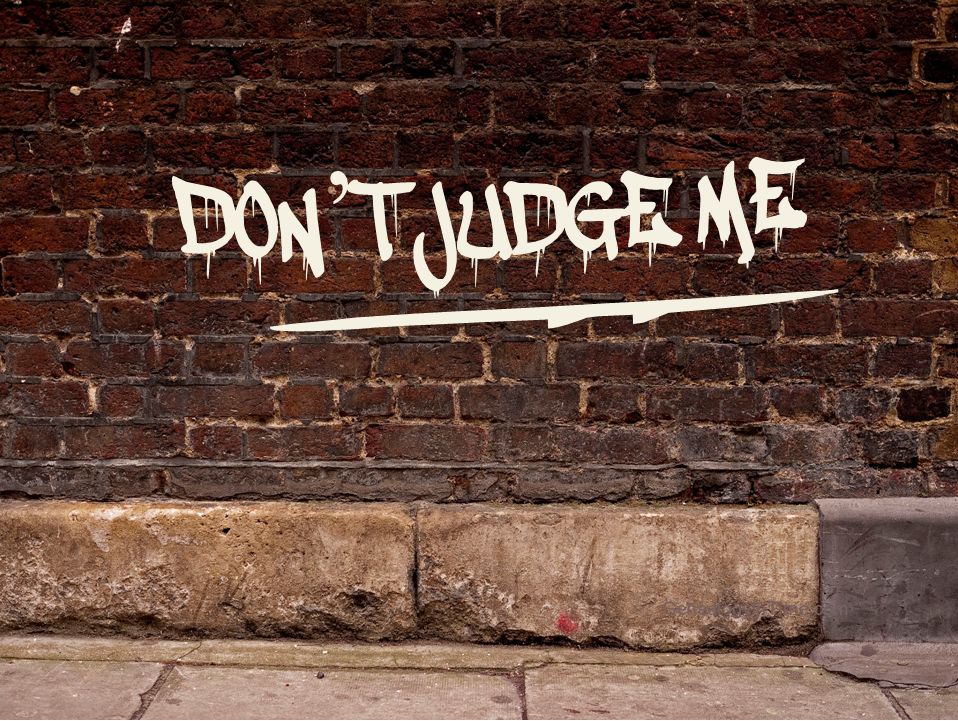 Although we took a short timeout to discuss the issue of the Sabbath, we have been looking at the conditions for judging. Although we often hear “Don’t judge me!” we have determined that judging is, at certain times, necessary.
Although we took a short timeout to discuss the issue of the Sabbath, we have been looking at the conditions for judging. Although we often hear “Don’t judge me!” we have determined that judging is, at certain times, necessary.
There are four questions that must be answered before we put ourselves into the position of judge:
- Is it clear disobedience to God’s commands?
- Is it true?
- Am I also guilty?
- What is my purpose?
In part 1, we looked at the first of these questions. In this article, we will consider the next three.
Since we have already decided that the issue in question is in fact a clear act of disobedience to God’s commands (condition #1), we need to determine if it is actually true. There are plenty of false rumors available. In fact, if you have not heard untrue things about yourself you probably have not been listening.
Therefore, before we jump on something, we need to ask ourselves this question:
IS IT TRUE?
I would think this should go without saying. However, it seems that some folks love to spread unverified information. This tendency of humanity became obvious with the advent of e-mail and even more so when Facebook and Twitter appeared. We swallow up everything that comes along and go hunting for more.
This becomes a very serious issue when we spread untrue information about other people.
Do not speak evil of one another, brethren. He who speaks evil of a brother and judges his brother, speaks evil of the law and judges the law. But if you judge the law, you are not a doer of the law but a judge. There is one Lawgiver, who is able to save and to destroy. Who are you to judge another? (James 4:11-12 NKJV)
When we spread evil information about a person, we are also speaking evil of the Law and judging the Law. Why? Because the Law forbids defaming another person’s character.
You shall not bear false witness against your neighbor. (Exodus 20:16 NKJV)
You shall not go about as a talebearer among your people; nor shall you take a stand against the life of your neighbor: I am the Lord. (Leviticus 19:16 NKJV)
When you neglect this command, you are making the judgment that the Law does not apply to you. Therefore, you are now the judge over the Law!
At this point, we have considered two questions to ask when determining if we are to act as a judge:
- Is it clear disobedience to God’s commands?
- Is it true?
Now we move on to the third question. This question moves the focus off the other person and onto me.
AM I ALSO GUILTY?
Let’s see what Paul said to the Romans:
Therefore you are inexcusable, O man, whoever you are who judge, for in whatever you judge another you condemn yourself; for you who judge practice the same things. (Romans 2:1 NKJV)
Immediately before these words Paul mentioned all kinds of sin, including gossip, pride, disobedience, and even homosexuality. It is easy to pick out a few of these sins and focus on them. However, Paul’s warning is that there is no excuse for pointing out these sins in others when you are guilty yourself. When you lay down a verdict about another person, you are also condemning yourself.
God, however, is holy. Therefore, He never sins and can judge with truth.
But we know that the judgment of God is according to truth against those who practice such things. (Romans 2:1-2 NKJV)
Paul gave more advice on the subject to the church in Galatia.
Brethren, if a man is overtaken in any trespass, you who are spiritual restore such a one in a spirit of gentleness, considering yourself lest you also be tempted. (Galatians 6:1 NKJV)
The process of judging is not an occasion to find fault with other people. It is rather an opportunity for those who have matured to help others who need restoration.
When you envision a judge, most likely the image in your mind is a person who is mature, maybe even with a little gray hair. He or she lives an exemplary life and can be trusted. A good judge does not get involved with insignificant squabbles, but lives above the fray.
I usually enjoy watching the annual State of the Union address by the president. Sometimes I watch it more for comedy relief than anything else. It is comical to observe who claps and who does not as well as who stands and who sits. Through it all, except in rare occasions, the Supreme Court justices sit quietly. They recognize that it is their job to portray an air of neutrality and not get caught up in the chaos around them.
If you want to be a judge, you had better act the same way—above reproach.
Remember the illustration of the beam and the speck of dust from Matthew 7? How can you see clearly to judge another person when you have a bigger issue yourself?
OK. Maybe you’re not guilty of the same sin as the other person, so you think you are qualified to judge. Not so fast. It seems to me that Paul’s instructions are to clean up your whole life before you start sitting in judgment on others.
This brings us to the final condition for judging: What is my purpose?
WHAT IS MY PURPOSE?
In other words, why am I even considering approaching another person about his sin?
In my experience, it seems that we want our enemies to be judged harshly for a light offense, but our friends to receive mercy for a big offense. Other times we are quick to jump into situations in which we have no business. Maybe we just like to be in on the latest gossip or we see ourselves as the world’s policeman.
Let me remind you of this warning:
He who passes by and meddles in a quarrel not his own is like one who takes a dog by the ears. (Proverbs 26:17 NKJV)
Not a good idea, especially if you don’t know the dog.
Now let’s look again at what Paul said to the Christians in Galatia:
Brethren, if a man is overtaken in any trespass, you who are spiritual restore such a one in a spirit of gentleness, considering yourself lest you also be tempted. (Galatians 6:1 NKJV)
Paul’s command is to intervene in the life of another person only if you have a spirit of gentleness.
Notice that it does not say “confront” him, but “restore” him.
The goal is not to get even or to make sure he gets “what’s comin’ to him.” The goal of the whole process of judging is restoration.
So, it’s time for some self-assessment. Maybe you are feeling that you need to approach a person about some sin in his life. Should you do it? Make sure that you honestly answer these four questions:
- Is it clear disobedience to God’s commands?
- Is it true?
- Am I also guilty?
- What is my purpose?
If you cannot honestly give any of these an acceptable answer, let someone else do the judging.
Click here to visit the previous article, “God’s Rules or Mine? (The Sabbath)”
Click here to read “Conditions for Judging (Part I)”
Click here to read the next article in the series, “A Case for Judging – Real Sin”


